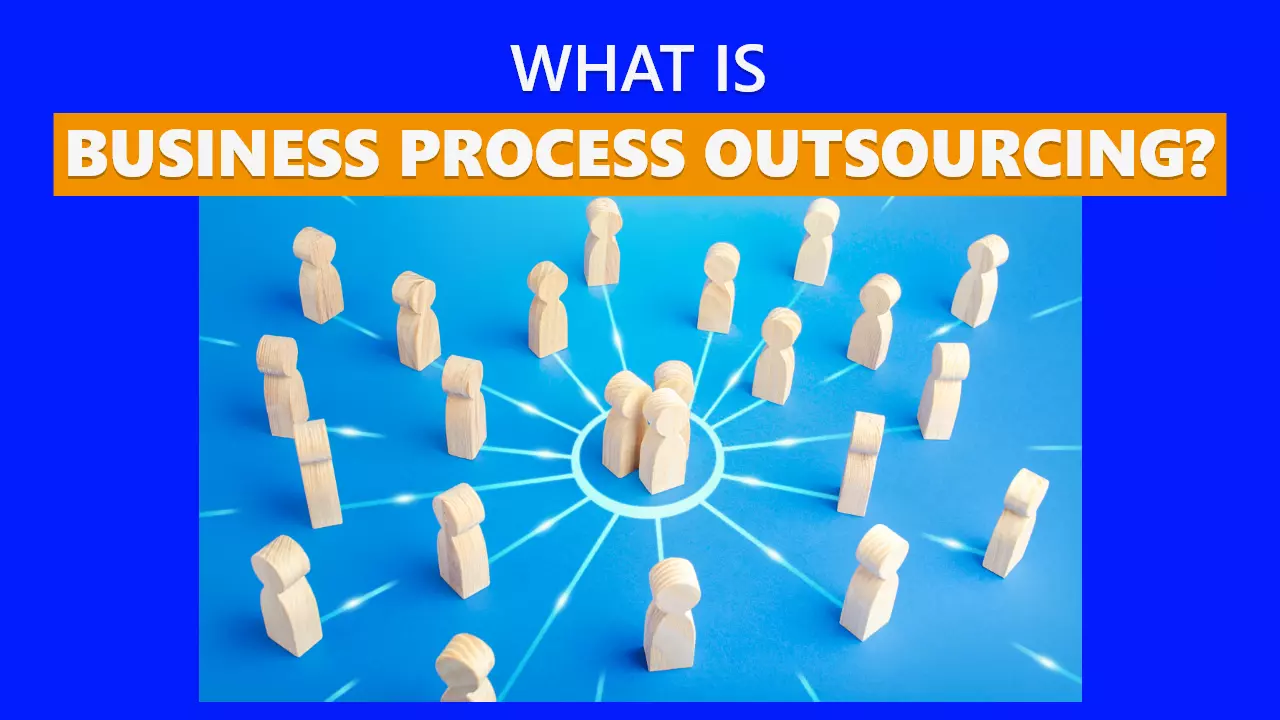In today’s competitive business landscape, organizations continually seek innovative ways to optimize operations, reduce costs, and enhance efficiency. Many businesses from startup to established ones, opt to outsource different processes. One increasingly popular emerging strategy is Business Process Outsourcing (BPO).
This process of outsourcing is an innovative service that is becoming increasingly available and highly popular in today’s highly competitive business world. Companies have the option to outsource various functions such as human resources, customer service, marketing, and supply chain management.
If you want to know about Business Process Outsourcing (BPO) keep on reading this article. We are going to discuss everything you need to know about business process outsourcing.
What Is Business Process Outsourcing?
Business process outsourcing (BPO) is where companies entrust specific business functions to external service providers. It differs from individual task outsourcing, as business functions like marketing or accounting are delegated to external companies. While BPO was initially popular among manufacturing firms, it has expanded to various industries.
BPO encompasses both back-office and front-office functions. Back-office tasks, such as accounting and human resources, are internal processes that are not customer-facing. On the other hand, front-office BPO involves customer-facing functions like sales or customer service.
There are three types of BPO. “Offshore” BPO involves hiring an overseas company to handle business functions. For instance, a U.S. company may outsource to a BPO company in the Philippines. Lastly, “domestic” or “onshore” BPO entails hiring a service provider within the same country as the hiring company.
How Does Business Process Outsourcing Work?
Business process outsourcing starts when a company decides that it can get benefit by outsourcing a business function such as accounting, marketing, or customer services from an external company. The company then started researching companies offering outsourcing services. Typically, the searching company contacts more than one BPO company to find one that is the best fit.
Once an organization reaches out to a BPO company, the conversation begins between them. Many BPO companies first listen to the client company and then offer a customized solution to fulfill their unique needs. Each BPO-client relationship is unique, as the requirements and expectations can vary. To establish a clear understanding, the BPO company and the client enter into a contract, commonly called a master service agreement (MSA) or a service-level agreement (SLA). This contract outlines the key terms and conditions of the partnership, providing a comprehensive overview of the agreement between the two parties. It serves as a guiding document that ensures both parties are on the same page regarding the scope of work, performance expectations, and other essential aspects of the BPO arrangement.
After receiving broad contracts from various BPO companies, the client company evaluates and assesses which BPO company offers the best value and aligns with their needs. Once a decision is made, the client hires the chosen BPO company for their outsourcing requirements. A backup BPO company may also be selected as a contingency plan to mitigate risks if the primary provider falls short.
Once the BPO company is onboarded, more detailed agreements are established to govern the handling of each specific project. These agreements, known as statements of work (SOW), outline the project’s specific tasks, deliverables, and timelines. The overall relationship between the client and the BPO provider is guided by the terms specified in the master service agreement (MSA), service-level agreement (SLA), and SOW. In this process, Business process outsourcing services play a crucial role in ensuring that the outsourced functions are managed efficiently, aligning with the company’s strategic goals and operational requirements.
The SOW is regularly reviewed and updated to maintain a productive relationship between the client and the BPO provider. Regular communication and adjustments to the agreement help maintain alignment and optimize the outcomes of the partnership.
What Are The Benefits Of Business Process Outsourcing?

You may get numerous benefits by hiring a BPO company that include access to advanced and innovative technologies, operational flexibility, cost savings, reduced risks, quick reporting and better ability to respond to change.
All these advantages ultimately lead to a competitive advantage. Let’s have a closer look at the benefits of BPO.
1. Better Operational Flexibility
By entrusting non-core functions of your business, like marketing and HR, to external experts through outsourcing, your internal personnel can fully concentrate on their core competencies. It allows them the freedom to dedicate their time and energy to activities that truly differentiate your business and drive its success.
With the burden of non-core tasks lifted, your team can be more innovative, creative, and adaptable, bringing fresh perspectives and ideas to propel your business forward.
2. Cost Savings
BPO companies often operate in countries with lower corporate income tax rates and reasonable labor costs. This strategic decision allows them to offer cost-effective solutions to businesses that outsource their operations. By leveraging the advantages of hiring from these countries, BPO companies can pass on the savings to their clients.
In addition to reduced labor costs, outsourcing can significantly save office space rentals, software expenses, and other overhead costs that businesses would otherwise incur. These financial benefits make outsourcing attractive for companies looking to optimize their operational expenses and achieve greater financial efficiency.
3. Access To Top Talent
BPO companies prioritize hiring highly skilled professionals with extensive expertise in their specialized areas, such as HR or payroll. By attracting and retaining top talent, these companies can effectively compete with their counterparts in the industry.
When businesses choose to partner with these BPO companies, they benefit from their services and gain access to the valuable knowledge and insights possessed by the talented individuals within the BPO team. This access to expertise enhances the services’ quality and allows businesses to leverage the specialized knowledge of professionals who excel in their respective fields.
4. Better Response to Change
By leveraging top talent, cutting-edge technologies, cost-saving measures, increased internal flexibility, and advanced reporting capabilities, companies can navigate the rapidly changing landscape of their industries and meet evolving customer demands. This strategic advantage allows businesses to proactively adapt to upcoming changes, staying ahead of the curve and maintaining a competitive edge.
With access to advanced reporting, outsourcing companies can anticipate future shifts in the market, enabling them to make timely adjustments and remain agile in their operations. This proactive approach empowers businesses to respond swiftly and effectively, ensuring they are well-prepared to meet customer needs and seize emerging opportunities.
5. Advanced And Quick Reporting
Businesses can unlock many benefits, including enhanced reporting capabilities, by partnering with BPO companies that harness advanced technologies such as artificial intelligence (AI), machine learning (ML), and automation. These cutting-edge tools enable faster and more accurate financial and cash flow forecasting, providing businesses with valuable insights into their operations.
With the power of AI and ML, data analysis becomes more efficient and comprehensive, enabling businesses to make informed decisions and strategic plans based on real-time information. Integrating advanced technologies within BPO services empowers companies to optimize their financial management, improve forecasting accuracy, and drive better overall business performance.
6. Enhanced Competitive Advantage
By leveraging innovative technologies, tapping into specialized expertise, and reaping the benefits of cost savings, advanced reporting, specialized risk management, and operational flexibility, companies gain a significant competitive advantage over their rivals. With access to cutting-edge tools and knowledge, businesses can stay ahead of the curve and outperform competitors who may not have embraced these advantages.
The combination of advanced capabilities and strategic insights allows companies to make more informed decisions, streamline operations, and proactively respond to market changes. By harnessing these resources through partnerships with BPO companies, businesses can strengthen their position in the market and create a compelling edge that sets them apart from the competition.
7. Risk Management
Companies can gain a distinct competitive advantage over rivals who lack such resources by embracing innovative technologies, tapping into specialized expertise, and capitalizing on cost savings, advanced reporting, specialized risk management, and operational flexibility. This comprehensive toolkit empowers businesses to stay ahead of the curve, outperform competitors, and thrive in the market.
With the ability to leverage cutting-edge technologies and expert knowledge and optimize operational efficiency, companies can make informed decisions, adapt quickly to changing market conditions, and drive growth. By seizing these opportunities and partnering with BPO companies, businesses position themselves for success and establish a compelling edge that sets them apart from the competition.
How VoIP Can Improve Business Process Outsourcing?
Voice over Internet Protocol (VoIP) enhances business process outsourcing (BPO) by providing cost-effective and scalable communication solutions. It reduces call costs and infrastructure expenses, offering easy scalability to accommodate the dynamic staffing needs of BPOs. VoIP offers unified communication features, including advanced call functionalities, to promote collaboration and efficiency within BPO teams.
The technology supports remote work, enabling agents to operate from anywhere with mobile integration for on-the-go connectivity. Integration with business applications, such as Customer Relationship Management (CRM) systems, streamlines workflows and enhances customer interactions. Additionally, VoIP ensures reliability through redundancy measures and delivers advanced call monitoring capabilities for quality assurance in customer service, contributing to overall operational efficiency and competitiveness in the BPO industry.
Conclusion - Business Process Outsourcing
Business Process Outsourcing (BPO) offers businesses numerous benefits in today’s competitive business landscape. By entrusting non-core functions to external service providers, organizations can achieve operational flexibility, cost savings, access to specialized expertise, and enhanced risk management.
BPO enables companies to focus on their core competencies, unleashing innovation, and adaptability within their teams. The cost advantages of outsourcing, including lower taxes and labor expenses, contribute to financial efficiency. Access to top talent brings industry expertise and insights to drive business success. BPO empowers companies to respond effectively to changes in the market and customer demands, leveraging advanced reporting and forecasting capabilities.
By embracing innovative technologies and capitalizing on the advantages of BPO, businesses can develop a competitive edge, outperform competitors, and position themselves for long-term success. Ultimately, BPO presents a strategic opportunity for companies to optimize operations, enhance efficiency, and drive growth in an ever-evolving business landscape.




